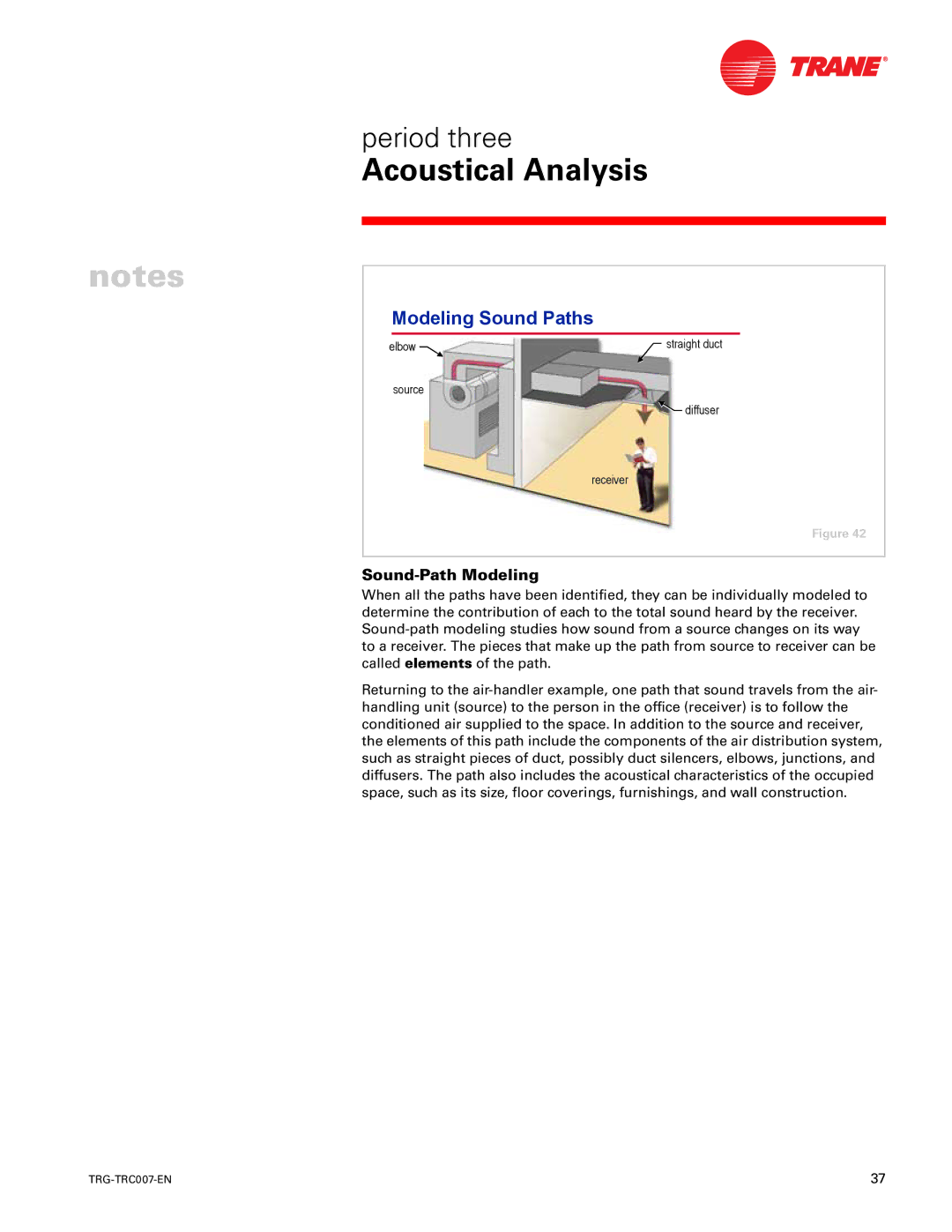period three
Acoustical Analysis
notes
Modeling Sound Paths
source

 diffuser
diffuser
receiver
Figure 42
Sound-Path Modeling
When all the paths have been identified, they can be individually modeled to determine the contribution of each to the total sound heard by the receiver. Sound-path modeling studies how sound from a source changes on its way to a receiver. The pieces that make up the path from source to receiver can be called elements of the path.
Returning to the air-handler example, one path that sound travels from the air- handling unit (source) to the person in the office (receiver) is to follow the conditioned air supplied to the space. In addition to the source and receiver, the elements of this path include the components of the air distribution system, such as straight pieces of duct, possibly duct silencers, elbows, junctions, and diffusers. The path also includes the acoustical characteristics of the occupied space, such as its size, floor coverings, furnishings, and wall construction.

![]()
![]() diffuser
diffuser